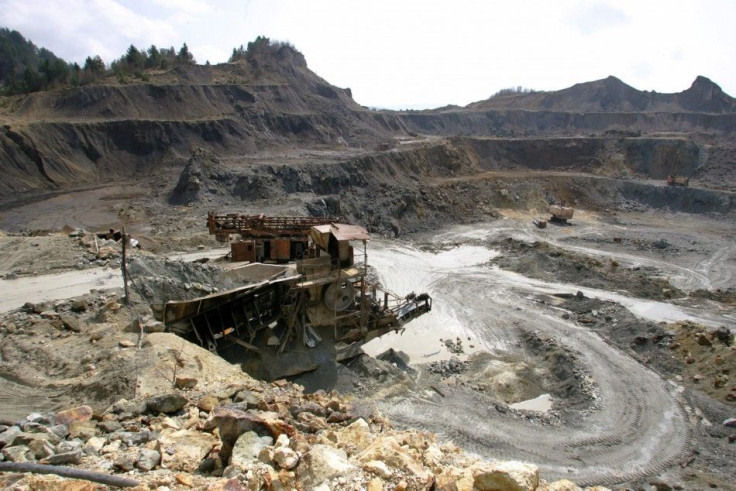Romanian Gold Mine Advances but Criticism Continues

Romania's top environmental official objected Thursday to part of a plan for a huge gold mine that recently received a key governmental approval, but the head of the venture responded by saying his project's environmental standards will be among the highest in the world.
Laszlo Borbely, minister of Environment and Forests, told Romania's ACTMedia News Agency that he remained unconvinced that a plan by Canada-based Gabriel Resources Ltd. to open up and expand an ancient gold mine, known as Rosia Montana, would not hurt the environment of western Romania and regions nearby.
Among his greatest worries is the amount of cyanide that will be left in the tailing pond, a vast reservoir that will hold leftover material from the mining.
At present I have additional demands, he said in Sibiu. When I took over the ministry I said I would not approve Rosia Montana until I was convinced it did not harm the environment.
While the European standard for cyanide in tailing ponds is 10 parts per million, Gabriel already has agreed to keep the level at 5-7 ppm, said Jonathan Henry, Gabriel's CEO. He also said he believes we can get the level of cyanide even below that 5-7 ppm level.
He noted that not only does Gabriel's planned cyanide level exceed European standards but it vastly exceeds standards in other parts of the world, such as Nevada which allows as much as 50 ppm.
Henry said politicians' public objections to the Rosia Montana mine are not surprising given that Gabriel and its Romanian partner, a state-owned company, recently received a key approval.
Some politicians wanted to lay on additional demands so they could say they had extracted additional demands and therefore could claim a political victory. We fully understand that, Henry said.
Borbely's objections are only the latest in a long line of complaints and obstacles that investors -- spurred by gold's price tripling since 2007 to more than $1,800 per ounce -- have faced in unearthing some 10 million ounces of gold. Upon completion of the mine's construction it is expected to produce 500,000 ounces per year at a cash cost of less than $400 per ounce, said Henry. In the first few years of mining it will produce about 630,000 ounces, he added.
Borbely said he planned to have weekly talks with the investor as I want to be sure and I want specialists to convince me it will be a closed system with no harm against the environment.
They should also bring in money to bring the land back to its old form. For that the contract should be renegotiated. There are some clauses which can be renegotiated by the Ministry of Economy. Now Rosia Montana is an open question and there will be months until we complete the analysis in the Technical Council.
In response to suggestions that financial terms should be renegotiated, Henry noted that under the current plan Romania's economic take is 56 percent despite only having a 20 percent equity stake in the mine.
We fully expect to come to the negotiating table on key issues ands we're happy to do so to get a project that has been stalled for some time going, Henry said.
Gabriel has already spent about $500 million on the venture, which -- barring more delays -- could begin producing by 2014 or 2015. Output is estimated to last about 15 years. Henry hopes to begin construction of the mine in 12 to 18 months.
I'm cautiously optimistic, he told the Globe and Mail. If the Romanian government did not want this project, we'd know by now.
Gabriel has the support of Romania's president, Traian Basescu' but other authorities are less positive. Besides Laszlo and his environmental concerns, Prime Minister Emil Boc has expressed a preference to have terms of the deal with Gabriel renegotiated to increase the financial benefit to Romania.
If the project gets underway it will bring $1.8 billion in direct benefits to Romania and $2.2 billion from indirect services as well as employ about 800 people, Gabriel recently told McClatchy Newspapers.
Detractors include Greenpeace Romania, Centre of Legal Resources and a group called the Rosia Rebels.
Henry said his project enjoys strong local support from residents of an area with high unemployment and a relatively low standard of living.
When we were there in April there were local people waving banners and saying, 'We want jobs, we want the mine.'
© Copyright IBTimes 2024. All rights reserved.






















